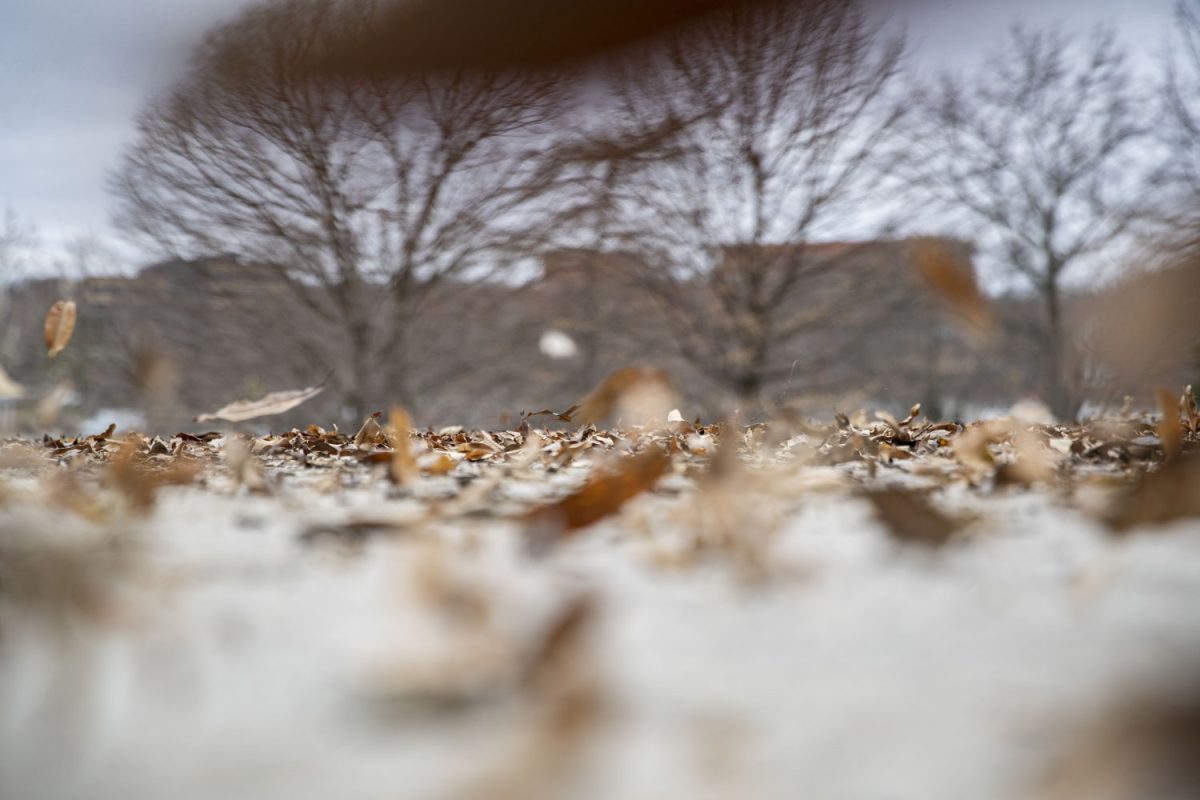This autumn, Iowa City is recommending that its residents leave their leaves in their yards, promoting healthier lawns and soil. This practice is not new for Iowa City climate ambassador Robert Traer, who has practiced this initiative for 20 years.
According to the city, there are many benefits to doing less raking. For example, leaving leaves in yards can provide habitats, insulation, and food for pollinators during the winter. This practice can also supply the environment with important nutrients for the following spring.
“It’s not a dying environment just because the leaves are falling off the trees. In fact, it becomes an opportunity of an incubating environment for this whole world of insect and microorganism life,” Traer said.
Iowa City’s recycling coordinator Jane Wilch said there is more than one benefit regarding the practice.
“[Leaves] are something that are readily available this time of year,” Wilch said. “The other benefit is that it’s completely natural. It’s just coming from organic material.”
According to a study conducted by the University of Maryland, areas where leaves are left over time have up to 32 percent more soil organic carbon than areas where the leaves were removed.
The Iowa City landfill is participating in this practice in their own backyard. Leaves collected through compost or through the leaf vacuuming program are put to use in the landfill in hopes of improving soil health.
“We definitely want to not just talk the talk but walk the walk ourselves. We’ve got leaves that we’re spreading around the landfill property for the exact same reason,” Wilch said.
Wilch recognized some may be apprehensive of leaving their leaves because of how it looks. Additionally, she said the fear of suffocating the grass is the main reason residents tend to rake their yards, but Wilch said a thin layer should not harm anyone’s yard. She also believes the benefits of leaving the leaves far outweigh the costs.
RELATED: Iowa researchers release 14th annual Iowa Climate Statement
Since the city has recommended that residents take part in the initiative, Traer has seen changes on his own block.
“I know people that, when we walk around now in the neighborhood, we see more yards that have left the leaves on the ground than we used to when we first came here,” Traer said.
Even though Traer has seen changes on his block, he still notices the number of residents using leaf blowers.
“I urge people to stop using leaf blowers that run on gasoline,” Traer said.
According to a study published by Public Interest Network, a non-partisan organization that conducts research for civic engagement and litigation, reported emissions of gas-powered lawn and garden equipment in Iowa estimated the devices generated 247,179 tons of carbon dioxide in 2020.
In 2022, the Iowa Department of Natural Resources reported Iowa more than 124 million metric tons of greenhouse gas emissions were released in the atmosphere.
Mitch Meis, the owner of Ace Hardware located on North Dodge Street, said the location has sold 178 leaf blowers in 2024, 60 of which were gas powered.
The retail price for gas powered units averages out to $194 according to Meis.
“I think if someone recognizes that their lawn might need a little boost of nutrients, then leaving a portion of their leaves on their lawn can be a really great natural, easy option for that,” Wilch said.



